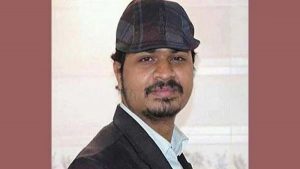The US has threatened sanctions against the International Criminal Court if it goes ahead with prosecutions against Americans.

The court is currently considering prosecuting US servicemen over alleged detainee abuse in Afghanistan.
National Security Adviser John Bolton called the court “illegitimate” and vowed the US would do everything “to protect our citizens”.
The US is among dozens of nations not to have joined the 2002-founded court.
Why is John Bolton angry?
He has long been an outspoken critic of the court but Monday’s hard-hitting speech in Washington focused on two areas.
The first was ICC prosecutor Fatou Bensouda’s request last year for a full investigation into alleged war crimes in Afghanistan, which would include any committed by US military and intelligence officials.
Image copyright Reuters Image caption US personnel in Afghanistan could be subjected to ICC investigations
On this issue, Mr Bolton said neither Afghanistan nor any government signatory to the ICC’s Rome Statute had made such a request.
The second was the Palestinian move to bring Israel before the ICC over allegations of human rights abuses in Gaza and the occupied West Bank – a move dismissed by Israel as politicised.
Mr Bolton said the Palestinian move was one of the reasons the US administration had decided to close the Palestinians’ diplomatic mission in Washington.
In his tirade against the court, Mr Bolton said it:
• Was a threat to “American sovereignty and US national security”
• Lacked checks and balances, claimed “jurisdiction over crimes that have disputed and ambiguous definitions” and failed to “deter and punish atrocity crimes”
• Was “superfluous” as the US administration did “not recognise any higher authority than the US Constitution”
Mr Bolton said: “We will not co-operate with the ICC. We will provide no assistance to the ICC. We will not join the ICC. We will let the ICC die on its own. After all, for all intents and purposes, the ICC is already dead to us.”
White House spokeswoman Sarah Huckabee Sanders backed Mr Bolton, saying President Donald Trump would use “any means necessary to protect our citizens [and] those of our allies from unjust prosecution from the ICC”.
What steps could the US take?
ICC judges and prosecutors would be barred from entering the US and their funds in the US would be sanctioned.
“We will prosecute them in the US criminal system. We will do the same for any company or state that assists an ICC investigation of Americans,” Mr Bolton said.
More “binding, bilateral agreements” would be signed to stop countries submitting US citizens to the court’s jurisdiction.
What has the response been?
The ICC said it had the support of 123 member states, adding in a statement: “The ICC, as a judicial institution, acts strictly within the legal framework of the Rome Statute and is committed to the independent and impartial exercise of its mandate.”
Liz Evenson, associate international justice director at Human Rights Watch, told AFP news agency that Mr Bolton had shown “callous disregard for victims of atrocity crimes” and that the US was “more concerned with coddling serial rights abusers… than supporting impartial justice”.
What is the ICC?
Image copyright Reuters Image caption The court in The Hague was founded in 2002
The court investigates and brings to justice people responsible for genocide, crimes against humanity, and war crimes, intervening when national authorities cannot or will not prosecute.
The ICC was established by the Rome Statute in 2002, but the US did not ratify it as President George W Bush opposed the body. Mr Bolton served in the Bush administration, notably as ambassador to the UN from 2005.
The Rome Statute has been ratified by 123 countries, including the UK, leaving more than 70 as non-members. President Barack Obama sought to develop co-operation with the ICC.
‘America First’ writ large
By Tara McKelvey, BBC White House reporter
As a diplomat, John Bolton is famously bellicose: he once said if the UN building in New York “lost 10 storeys, it wouldn’t make a bit of difference”.
And he’s made clear how he stands on carrot-and-stick diplomacy, saying: “I don’t do carrots.” As national security adviser, he’s been more aggressive than the president at times – and has been reined in.
When Mr Bolton said North Koreans should get rid of nuclear equipment in the way the Libyans did, Trump disavowed his remarks.
On Monday, though, Mr Bolton made his first major address as the national security adviser and showed he’s in sync with the president. In threatening to sanction ICC judges, he is helping to reinforce the president’s “America First” policy. – BBC




